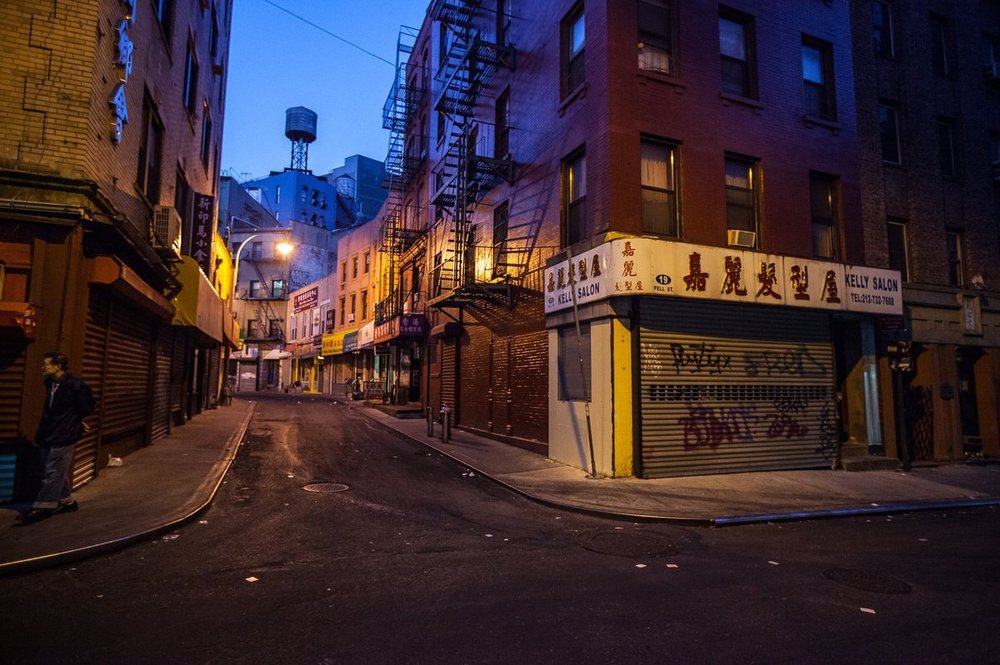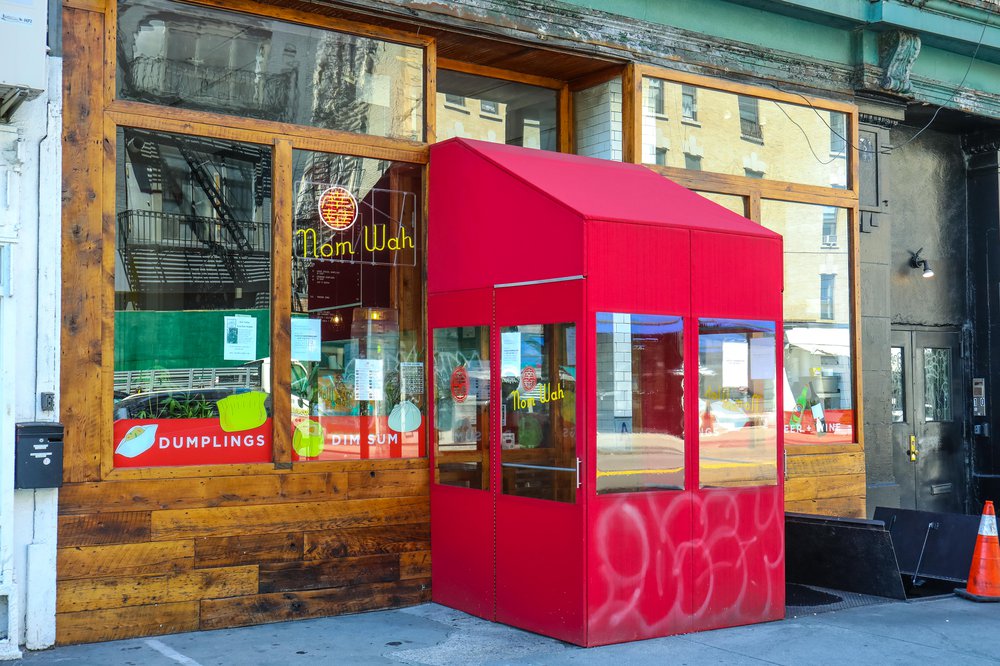Here's Why Your Local Chinese Takeout Spot Is (Probably) Closed
April 13, 2020, 6:13 p.m.
At a moment when many restaurants and bars are switching to a takeout and delivery model, the sudden scarcity of Chinese delivery, a ubiquitous staple of the city's food landscape, can seem counter-intuitive.

With so much of city life put on hold to slow the spread of COVID-19, many homebound New Yorkers are now coming to grips with yet another hard-to-swallow reality: the sudden disappearance of their trusted Chinese takeout spot.
Since the pandemic began, eateries of all stripes have struggled. But the impact of the virus may be particularly stark for Chinese takeout joints, which appear to have shut their doors en masse in recent weeks. Calls to more than 50 such locations throughout the five boroughs turned up only one establishment — China Wang in the Spuyten Duyvil section of the Bronx — that answered the phone and was accepting orders on Monday afternoon.
At a moment when many restaurants and bars are switching to a takeout and delivery model, the sudden scarcity of Chinese delivery, a ubiquitous staple of the city, can seem counter-intuitive.
According local business owners, the recent closures can be explained by supply chain issues and staffing shortages specific to the Chinese-American community, along with broader forces impacting immigrant-run mom and pop shops.
"People stopped coming to Chinatown and it became a ghost town," said Lily Ng, the owner of Lily’s Vegan Pantry, a vegetarian supplier and retail spot in Chinatown. "All of our neighbors are closed. We can't even buy morning coffee."
The drastic impact to the neighborhood had a ripple effect on eateries in other parts of the city. As food suppliers, based largely in Manhattan's Chinatown, have cut their hours or closed altogether, many restaurants have been left without a steady source of ingredients.
An investigation by the Daily Gazette into the lack of open Chinese takeout places in the Albany region found that the scarcity there stemmed, in part, from the scaling back of wholesalers in New York City.
Now, the landscape is similar across the Capital Region pic.twitter.com/wRSrA0mMsB
— Pete DeMola (@pmdemola) April 12, 2020
At the same time, owners of Chinese establishments both big and small say they are struggling to find employees to fill shifts right now.
"The most important impact right now to Chinese restaurants is many Chinese employees are concerned about their safety and do not wish to work," said Jason Wang, the CEO of Xi'an Famous Foods. Aside from selling chili packets online, Wang temporarily shut down his entire business last month.
Wilson Tang, the owner of the Nom Wah Tea Parlor in Chinatown, also cited an ongoing shortage of workers. He noted that many of his employees live in multi-generational homes and are concerned about spreading the virus to older relatives. Recent reports of anti-Asian hate crimes have also taken a toll on workers' sense of safety.
"My staff all take the subway from deep in Brooklyn and Queens," he said. "There’s this fear of taking public transit in the Asian community right now with all of the racism and xenophobia."

After speaking with his staff, Tang elected to close his Chinatown restaurant, while continuing to provide takeout and deliveries from its nearby fast-casual offshoot, Nom Wah Nolita. The restaurant has organized a car pool system so employees can avoid public transit. Tang is also looking into delivering frozen dumplings to offset the financial toll of shutting his main location.
"Your traditional Chinese restaurant, the mom and pops, don’t have bandwidth for that," said Tang. "We're talking about conversations with Caviar and GrubHub. There's a lot of technology on that side that's hard to figure out."
I just want all Chinese takeout business owners and employees to know that New York misses you and loves you and we can’t wait to see you again!
— Melanie 🌝 (@mel_is_a_melon) April 13, 2020
To be sure, plenty of choice Chinese establishments have remained open, from Sichuan restaurant Birds of a Feather in Williamsburg to Harlem's The Handpulled Noodle to the vegan offerings of Spicy Moon in the East Village. Many of those restaurants have turned to Instagram and other online platforms to get the word out.
"A lot of stores in Chinatown are still old school," noted Ng, the owner of Lily's. "They don't have the website or social media, they're not going to start a GoFundMe."
Both Tang and Ng said that they submitted applications for the small business relief program rolled out by Mayor Bill de Blasio last month, but hadn't received any updates from the city.
"As a mid-size company, just getting that paperwork in was very difficult," Tang said. "The small businesses that are immigrant-run are the ones who are going to suffer the most."
"The landscape is going to be forever changed after we get over this," he added. "Unfortunately a lot of restaurants are going to fail."
Additional reporting by Muhammad Rahman.